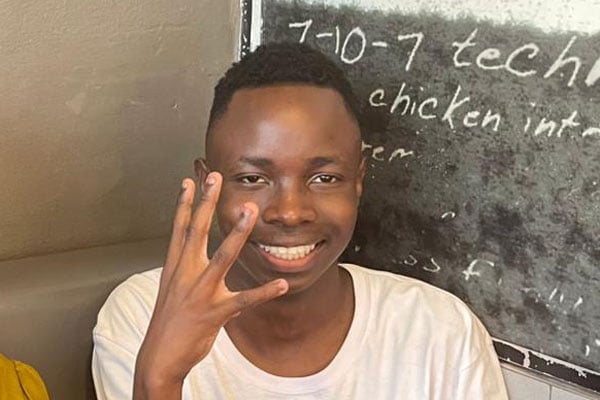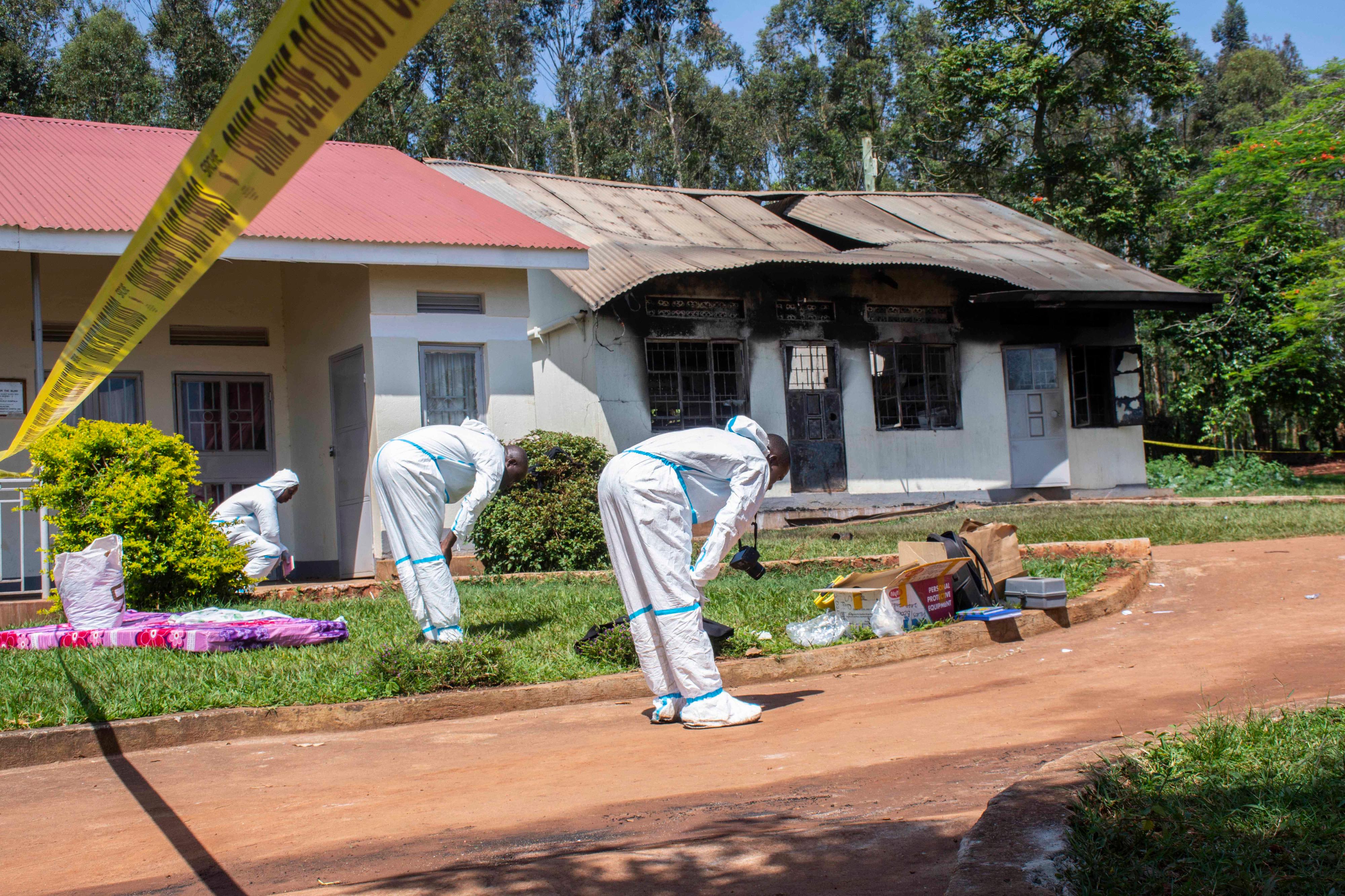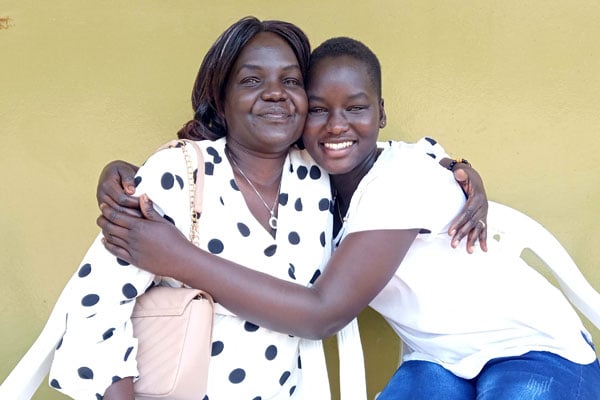Prime
Pupil who skipped P.6 scores Agg 4

Daniel Mukisa and his mother, Ms Jenifer Musayi. Mukisa a pupil of Hillside Primary School, Naalya in Kampala, is among the 60,070 boys who passed in Division One. Photo/Peter Serugo
Daniel Mukisa, a pupil of Hillside Primary School, Naalya in Kampala, is among the 60,070 boys who passed in Division One.
Like a few other cases, he skipped Primary Six class to score Aggregate 4.
Mukisa, 14, yesterday told Monitor that he was inspired after reading a book (which he couldn’t recall the title) where the author skipped Primary Six and excelled in the PLE. This was Mukisa’s first inspiration and he decided to follow in the author’s footsteps after his mother gave him the greenlight.
“My friend gave me a book, and as I read it, the author’s background indicated that he had skipped P.6 to sit for PLE and he scored [aggregate] 4. It is from here that I thought I can also do it,” he said.
“I shared the idea (skipping P.6) with my mother and she agreed unconditionally. That is how I joined the P.7 class,” he added.
Mukisa said despite excelling in the national examinations, he faced a number of challenges in P.7 since he almost had to study content for two classes (P6 and P7) in one year.
“At first, it wasn’t easy to cope with the P7 work because I had no idea about the pre-candidate classwork. But teachers could help us to go through the P6 work and always encouraged us,” he said.
The PLE start added: “My first scores in P7 were between 15-20 marks, except in English. But I started improving in the second term, by the third term, I was scoring above 80 in every subject. I am very happy that my friends and I who skipped P6 managed to perform very well.”
His mother, Ms Jenifer Musayi, says she could not deny her son the opportunity to skip a class since he had lost almost two academic years during the Covid-19 lockdown when the schools were closed to curb the spread of the pandemic.
“I couldn’t hesitate about my son’s decision because he was performing very well in his lower classes, secondly during the Covid lockdown, he used to make a lot of revisions and assessments,” she said.
“Mukisa is a boy who is self-driven, when it comes to studying, he does it wholeheartedly. During his first term in P.7, he was challenged, but he never gave up until the second term when he started performing better. I am so happy that he has already got a bursary to further his studies,” she added.
Due to Covid-19 lockdowns, which made learners sit at home for almost two academic years, many parents decided to have their children in upper primary school to register for PLE to ensure that they can cope with the lost time.
Mixed reactions
Mr Fagil Mandy, an educationist said: “Legally, this boy (Mukisa) was not supposed to sit for PLE, according to the Education Act, which states that for any pupil to sit for these exams (PLE), he or she must have studied for at least seven years at primary level. Although he perfomed well, it is still dangerous and it means that our education system is not well monitored.” “However, there is nothing wrong with this child given that learners lost almost two years due to Covid-19. The child fully qualifies to proceed to the next level of education, but he needs to be advised seriously to ensure that he remains focused to understand the concepts at O-Level,” he added.
The General Secretary of Uganda National Teachers’ Union, Mr Filbert Baguma, said teachers are free to decide whether to make a given learner skip some classes. “Skipping classes is very common at primary level and it does not affect the learner. We also need a policy, which can protect the genius learners in secondary schools so that they can sit for O-Level exams,’’ he said.





